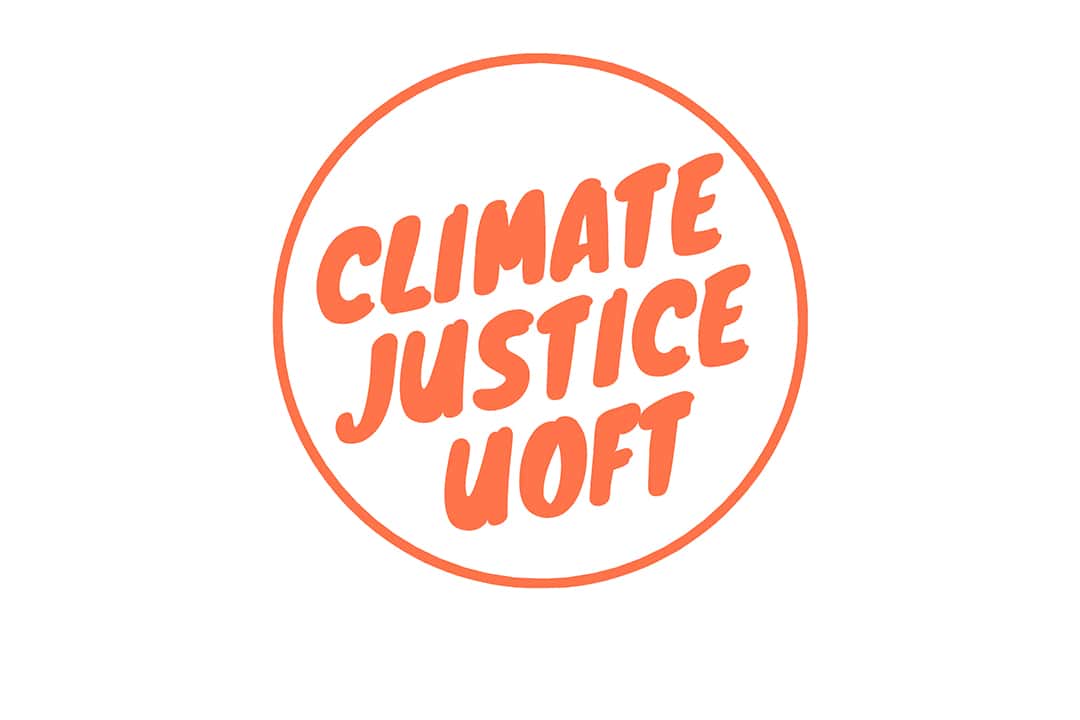It is impossible to justify investing in companies that kill people. It is especially impossible for U of T, an institution which prides itself on tackling global challenges and creating a more just and sustainable future, to justify lending its money to corporations that perpetuate violence and harm against people and communities.
Relentless organizing by Climate Justice UofT and other student and faculty groups resulted in U of T committing to divestment from fossil fuel companies in 2021. Last academic year, Climate Justice UofT successfully pressured all three federated colleges to do the same. U of T, however, still has a lot to be ashamed about.
The University Pension Plan (UPP) is near the top of the list. The UPP is a pension manager representing over 39,000 faculty and staff across U of T, the University of Guelph, Queen’s University, and Trent University. U of T joined the pension plan in 2021 and is the largest stakeholder institution.
On February 14, Climate Justice UofT launched a campaign demanding that the UPP immediately divest its $10.8 billion portfolio from the fossil fuel industry and companies. Despite the UPP’s recognition in its Climate Action Plan that climate change “presents a systematic and material risk to the ecological, societal, and financial stability of the economy as a whole,” the pension manager continues to invest in the fossil fuels that are fuelling the climate crisis.
As of December 31, 2022, the UPP reported between $190 million and $285 million of investments in the fossil fuel industry, including BP, Chevron, Enbridge, Exxon Mobil, Marathon Petroleum, and Shell. Not only are these investments at complete odds with the UPP’s commitments to sustainability, but it is also fiscally and morally irresponsible to invest in a harmful industry that we all know we must abandon.
Horrifically, the UPP is also invested in companies such as Amazon and Starbucks that are implicated in the ongoing genocide of the Palestinian people. As of December 31, 2022, the UPP reported investments in at least 12 companies on the Canadian Boycott, Divest, Sanctions Coalition’s list of “Israeli products and products produced by corporations profiting from the occupation” for consumers to boycott — including weapons manufacturers.
What economic gain could possibly justify continued investment in companies complicit in genocide? How could anyone justify funding companies implicated in the killing of over 29,000 Palestinians in the last five months?
Further, these investments are in clear violation of the UPP’s self-proclaimed commitment to sustainability. The link between the genocide and the climate crisis is glaringly obvious: on October 30, 2023, the Israeli government approved 12 gas exploration licenses to six fossil fuel companies off the coast of Gaza, including BP — in which UPP holds between five million dollars and $10 million in shares. Chevron, in which the UPP holds between $10 million and $25 million in shares, extracts gas illegally claimed by Israel in the Eastern Mediterranean. This extractivism implicates Chevron in Israel’s practice of depriving Palestinians of their right to sovereignty over their natural resources.
The UPP, and particularly their President and CEO, Barbara Zvan, work hard to cover their dirty investments with obvious greenwashing. They have several vague commitments to achieving net zero carbon emissions that do not actually stop them from investing in harmful companies. They use illegitimate “engagement” tactics, claiming that divesting from fossil fuel companies passes asset ownership over to “someone who might care less about their real-world impacts.” However, there is no evidence that UPP’s ownership and engagement of oil and gas companies has led to any meaningful emissions reductions or science-based climate plans.
Pension funds have been divested before. Many public pension funds divested from South Africa in the 1980s. Recently, New York City moved to divest its pension funds from fossil fuels. According to new research from the University of Waterloo in partnership with Stand.earth, US public pension funds could be $21 billion richer today if they had divested from fossil fuels 10 years ago. The Ontario Health Workers are pushing their pension fund to divest.
It is time for the UPP to do the same.
So get involved in our campaign. Sign our open letter to the UPP demanding they divest immediately. Get involved with Climate Justice UofT or Divestment and Beyond, the faculty group organizing around UPP divestment. We got U of T to divest. We got the federated colleges to divest. And we will get the UPP to divest too.
Alice Ferguson-O’Brien is a second-year student at Trinity College studying cognitive science and philosophy. Bronwen Foulds is a third-year student at Victoria College studying English and anthropology. Lilah Williamson is a second-year student at Trinity College studying economics and international relations. Ferguson-O’Brien, Foulds, and Williamson are members of the Divest Campaign within Climate Justice UofT.



No comments to display.